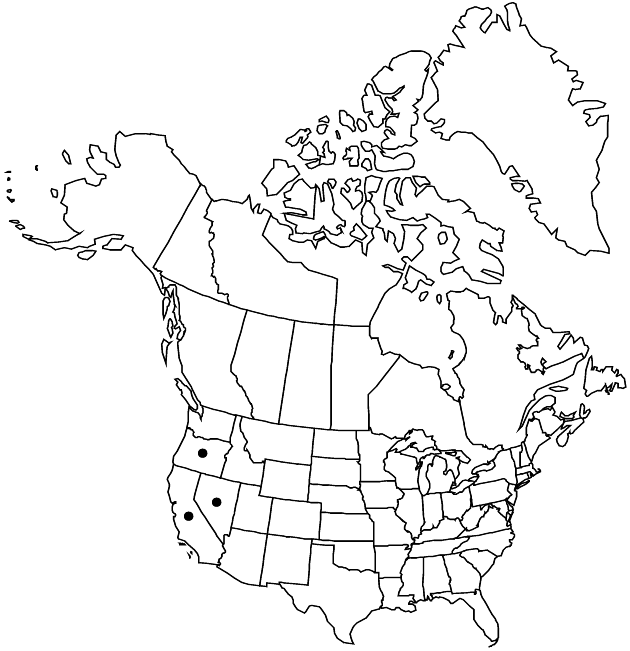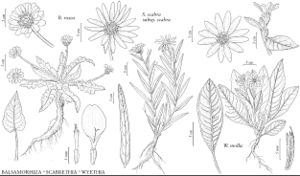Wyethia mollis
Proc. Amer. Acad. Arts 6: 544. 1865.
Plants 30–40(–100) cm. Basal leaves: blades lanceolate to oblong-ovate (whitish to gray or green), 20–30(–40) cm, margins entire, not ciliate, faces sparsely to densely tomentose to tomentulose (usually gland-dotted as well), glabrescent (nearly bald in age); cauline similar, smaller distally. Heads 2–3 in racemiform to corymbiform arrays or borne singly. Involucres campanulate to hemispheric, 20–25(–30) mm diam. Phyllaries 12–22, subequal to unequal, herbaceous, margins not ciliate, faces tomentose to tomentulose; outer 20–40 mm (equaling or surpassing inner). Ray florets 6–15; laminae 15–45 mm. Cypselae 9–10 mm, distally strigillose. 2n = 38.
Phenology: Flowering Jun–Jul.
Habitat: Meadows, dry to wet, open sites, openings in conifer forests
Elevation: 900–2200(–3000) m
Distribution

Calif., Nev., Oreg.
Discussion
Wyethia mollis grows in the Sierra Nevada and the Cascade Range.
Selected References
None.
